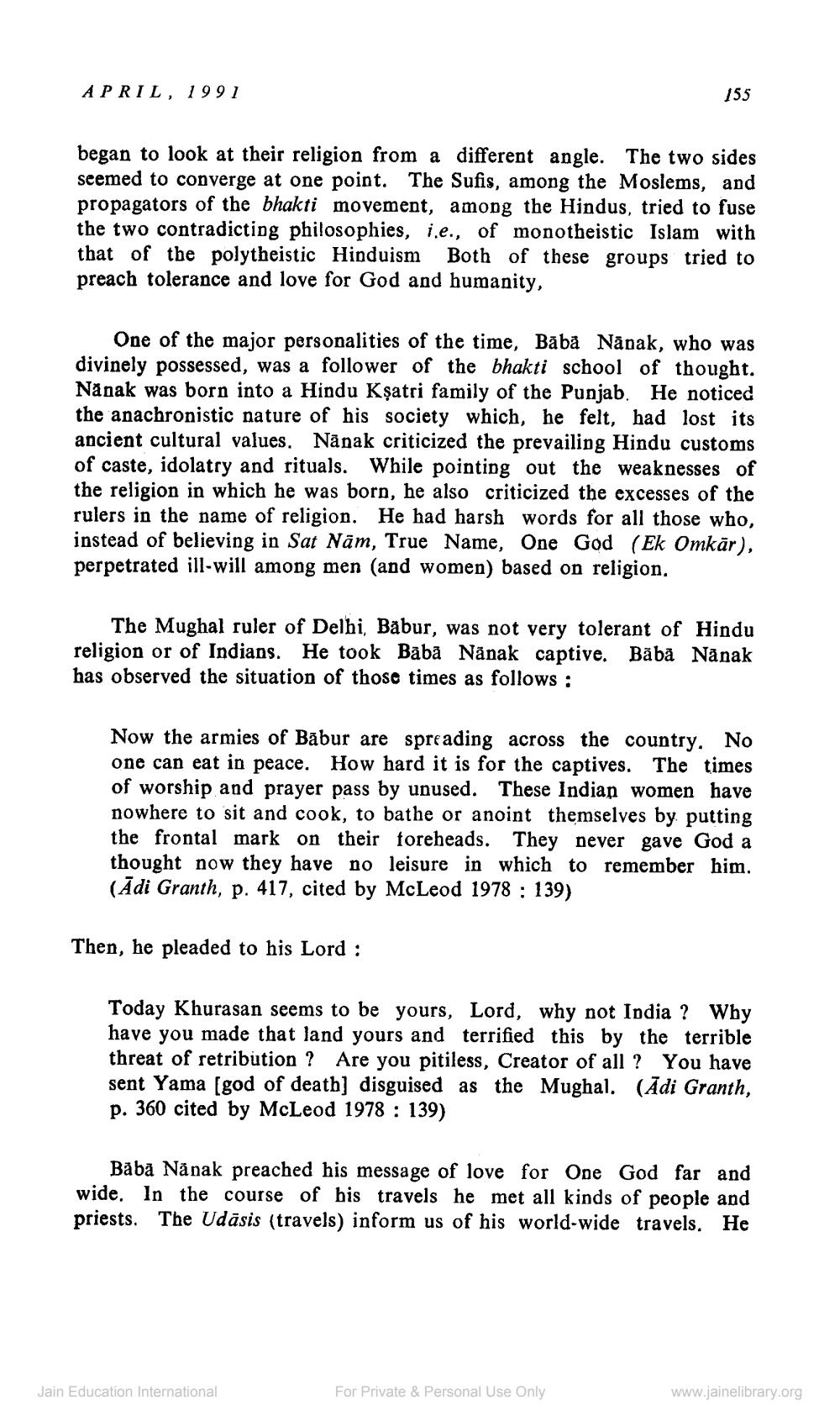________________
APRIL, 1991
155
began to look at their religion from a different angle. The two sides seemed to converge at one point. The Sufis, among the Moslems, and propagators of the bhakti movement, among the Hindus, tried to fuse the two contradicting philosophies, i.e., of monotheistic Islam with that of the polytheistic Hinduism Both of these groups tried to preach tolerance and love for God and humanity.
One of the major personalities of the time, Bābà Nanak, who was divinely possessed, was a follower of the bhakti school of thought. Nanak was born into a Hindu Kşatri family of the Punjab. He noticed the anachronistic nature of his society which, he felt, had lost its ancient cultural values. Nānak criticized the prevailing Hindu customs of caste, idolatry and rituals. While pointing out the weaknesses of the religion in which he was born, he also criticized the excesses of the rulers in the name of religion. He had harsh words for all those who, instead of believing in Sat Nam, True Name, One God (Ek Omkār), perpetrated ill-will among men (and women) based on religion.
The Mughal ruler of Delhi, Babur, was not very tolerant of Hindu religion or of Indians. He took Bābā Nānak captive. Băbă Nănak has observed the situation of those times as follows:
Now the armies of Bābur are spreading across the country. No one can eat in peace. How hard it is for the captives. The times of worship and prayer pass by unused. These Indian women have nowhere to sit and cook, to bathe or anoint themselves by putting the frontal mark on their foreheads. They never gave God a thought now they have no leisure in which to remember him. (Ādi Granth, p. 417, cited by McLeod 1978 : 139)
Then, he pleaded to his Lord :
Today Khurasan seems to be yours, Lord, why not India ? Why have you made that land yours and terrified this by the terrible threat of retribution ? Are you pitiless, Creator of all ? You have sent Yama (god of death] disguised as the Mughal. (Adi Granth, p. 360 cited by McLeod 1978 : 139)
Bäbā Nånak preached his message of love for One God far and wide. In the course of his travels he met all kinds of people and priests. The Udāsis (travels) inform us of his world-wide travels. He
Jain Education International
For Private & Personal Use Only
www.jainelibrary.org




